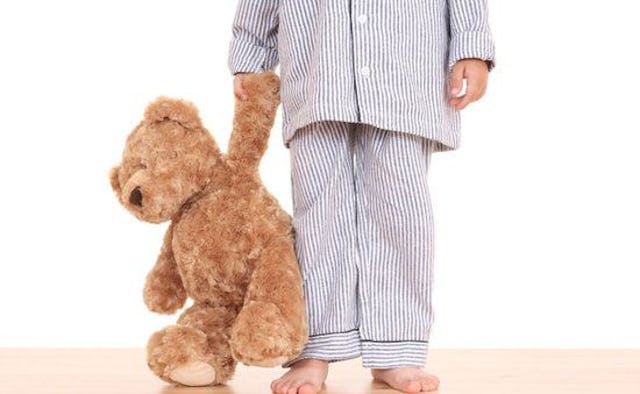Am I a Selfish Mother If I Choose Not To Have a Second Child?

It’s impossible not to have regrets in parenting. I regret not taking away my son’s pacifier when he was much younger. (Now he’s two and loves his binky more than anything — possibly even me — on the planet.) I regret the hours spent worrying that my son wasn’t walking, or talking, or crawling. I even regret my choice of car seat (the straps always tangle.).
Those are all little regrets. Tiny blips in the blur of everyday parenting. They don’t overwhelm me or cause me to stop in my tracks on a particular day when I think about them.
But the decision to have another child, to provide my son with a sibling, feels impossibly huge to me. I don’t want to have huge regrets about this one.
I do not believe in a “one size fits all” approach to figuring out how big your family should be. I also know that the long-held cultural stereotypes about only children — as lonely, selfish, and neurotic – are not true. I don’t think that my son will be lonely or weird or an outcast if he’s an only child. The deciding factor in whether he’s a productive and happy member of society, able to form meaningful connections and realize his dreams, will not be the presence — or absence — of siblings. As a teacher, I got to know (and adore) lots of delightful, smart, and well-adjusted kids who were only children.
After two years of sleepless nights, colic, and the chaos of infancy and early toddlerhood, I am starting to feel like myself again. A new “mother self,” but still myself. As an introvert, I finally get the time and space that I need to carve out professional and personal pursuits. I love seeing my son turn into a little person and spending my days with him. I don’t feel like our family is incomplete without more children. I feel whole and satisfied with one child and don’t really want more, at least not at this time. But I’ll be 39 this summer and my time for having a decision to make at all may slip away.
I also can’t help but feel that I’ve had personal experience that might trump my present gut feeling to stop at one kid. My dad was 53 when he passed away from cancer. I was turning 30. My brother, sister, and I all lived in the Northeast, but my parents were in Florida, after two happy years of a sort of early retirement.
When I first learned that my dad was sick, five months before he died, it was my sister who told me. We cried together on the phone and knew that our world had changed forever.
When I waited a few weeks before going to Florida to finish up the school year when he first got sick, I knew my brother was already there, mowing lawns and sitting with my dad on the porch.
When the doctors told us that there was no time left, all three of us flew back down to Florida, holding a sad and confused vigil for weeks. And on the afternoon that my dad died — a day whose sounds, sights and smells (the chocolate chip cookies that were inexplicably baked, the warm Florida October sun on the deck, the kind eyes of the hospice nurse) are seared into my memory, it is the touch of my brother’s hands on my head and shoulders, trying to comfort me as I cried, that I remember most vividly.
When a few days later at my father’s funeral, I simply couldn’t stand up in front of all those people and say anything — there were no words, for me, a writer — I felt at peace because I knew that my brother and sister would say all the words that needed to be said.
When my brother and I flew back up north, returning to our lives, we knew that my little sister had moved into my parents’ house when he got sick and would stay behind with our mother for as many weeks and months that it would take for her to find her way.
In short, I can’t imagine my life — everything that has happened between when my brother was born when I was three until these current years of negotiating early parenthood — without my siblings.
So, for me, even though I’ve been trained in research methodology for my doctorate and believe in the power of data-driven decision-making, this choice is ultimately one of the heart. For me, it feels almost as profound as life and death, love and loss. I’m afraid of regrets, either way. I feel comforted by the research evidence that only children are just as happy and healthy as anybody else, but it is only part of the story.
I also know that my present feelings as a mom, wife, and individual — my story — are just part of the equation; the life cycle of a family is long, holding many unforeseen challenges and triumphs. I don’t want to deny my son the chance to experience those heartaches and joys without the company of siblings.
My rational mind can pore over the research, data, facts about kids’ development, and I can listen to other families’ experiences, but none of these facts and figures can make this decision. My heart is confused and I’m waiting for its answer.
This article was originally published on